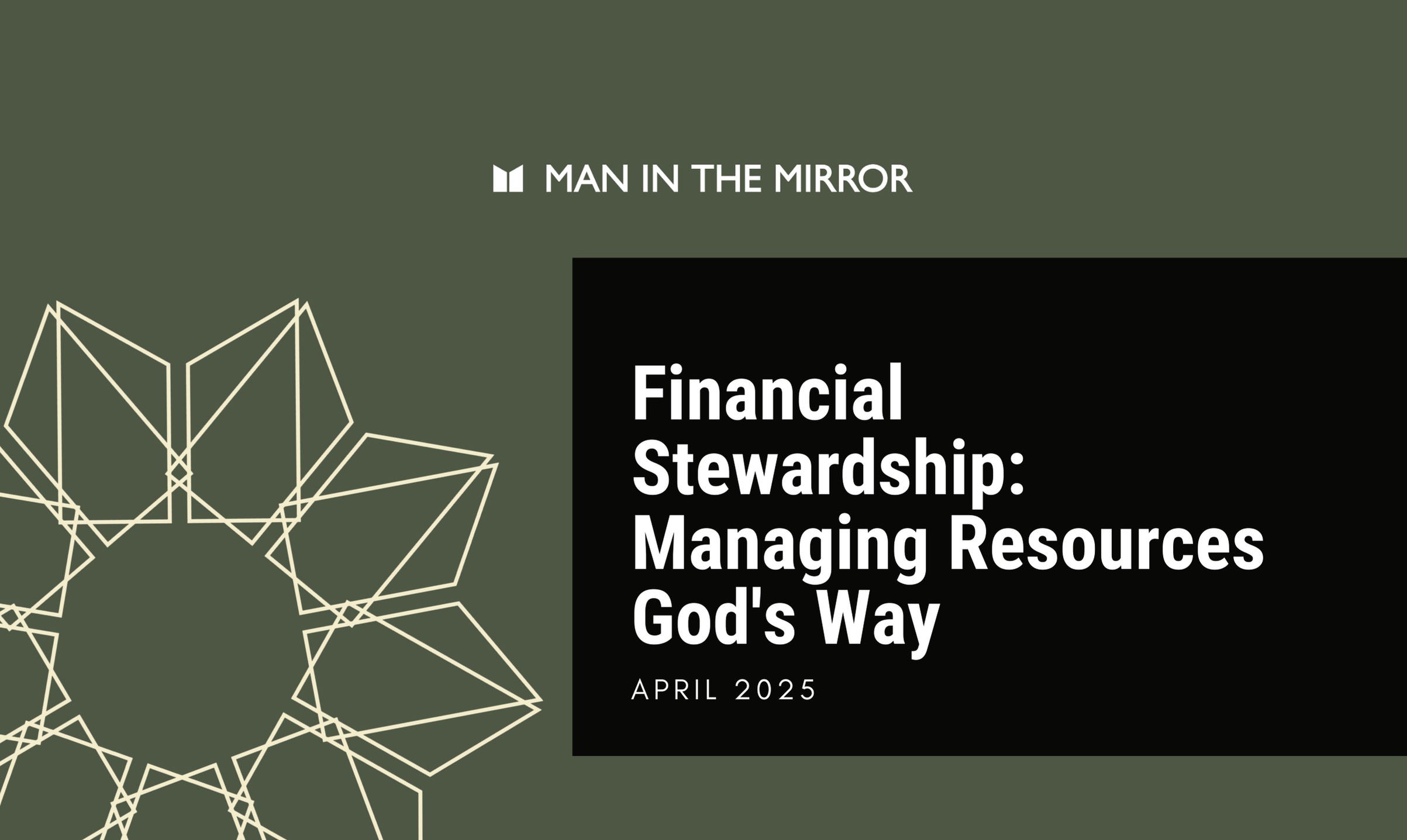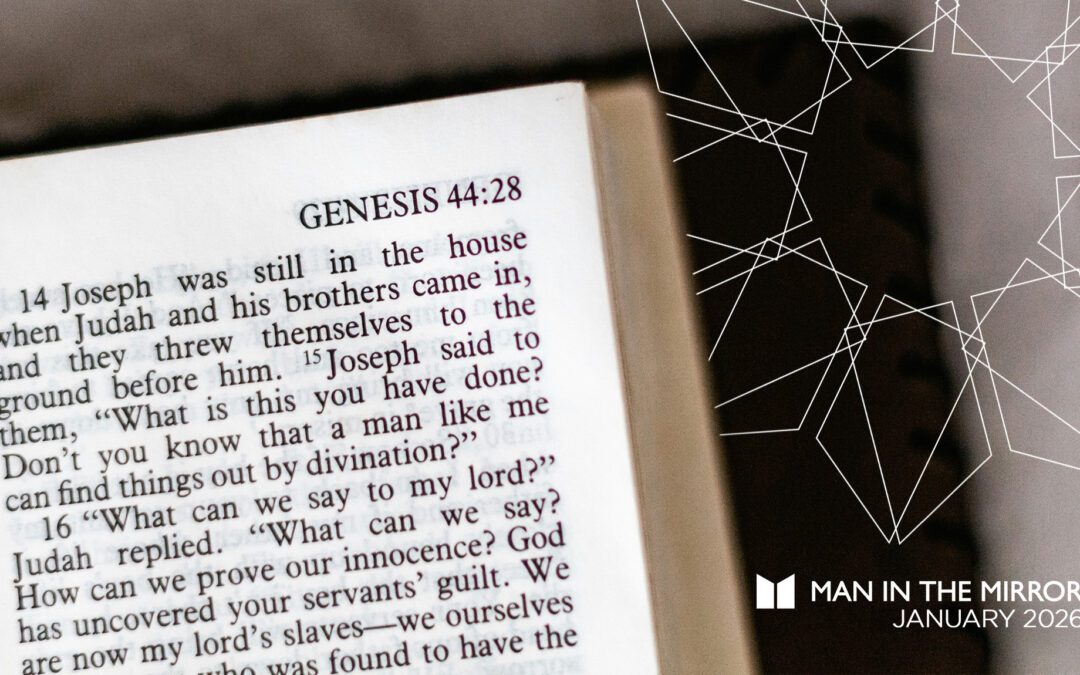Do you remember your first paycheck? Maybe you were a teenager working a new job or a twelve-year-old with a paper route. When you held that first paycheck in your hands, you were rich! You probably already had your first purchase all planned out: maybe a Nintendo or a new skateboard you’d been eyeing for months. With bills and responsibility still just a faint specter on the far-off horizon, the money was yours, all yours, to do with as you pleased.
It’s a self-gratifying attitude toward money that comes naturally to all of us — when we’re children. As we mature, though, our approach to finance matures with us. And when we give our lives to God, that includes mastery over the possessions and resources we like to think of as “ours, all ours.” At least, that’s God’s plan.
Brothers, as we journey together in our walk of faith, one area that often challenges us is managing our finances in a way that honors God. It’s easy to get caught up in the world’s view of money, but as men striving to live out biblical manhood, we’re called to a higher standard: stewardship. God has plans for us that touch every part of our lives, including how we use the gifts He gives us. With a heart surrendered to His will and consistent practice, we can learn to manage our resources according to God’s principles, strengthening our faith and our families.
Understanding Stewardship
First, we must recognize that everything we have belongs to God. Psalm 24:1 reminds us, “The earth is the Lord’s, and everything in it.” Our name might be on the bank account, but we’re not owners; we’re stewards entrusted with God’s resources and tasked to manage them wisely. This perspective shifts our approach to money, allowing us to look at it not as a personal asset that we own but as a tool for God’s purposes. When we adopt this mindset, financial decisions become less about personal gain and more about faithfulness. It’s not always easy, but as your faith in Christ grows stronger, the grasp with which you hold on to worldly treasures diminishes. You learn to trust God to provide for you.
Aligning Our Hearts
Our financial decisions reflect our hearts. In Matthew 6:21, Jesus said, “For where your treasure is, there your heart will be also.” Are we investing in things that feed our temporary pleasures or in things that reflect our eternal values? By bringing our hearts into alignment with God’s will through prayer and Scripture, we can direct our spending and saving habits along paths that honor Him. This means regularly evaluating our financial priorities and asking God for wisdom to steward our resources in ways that bring Him glory. It also means practicing gratitude for every blessing He brings us and acknowledging that every good gift is from Him.
Practical Steps to Godly Financial Management
1. Create a Budget
Planning is essential. Proverbs 21:5 tells us, “The plans of the diligent lead to profit.” A budget helps us track income and expenses, ensuring we’re living within our means and prioritizing God’s kingdom. Without a plan, it’s easy to fall into financial chaos, leading to stress and poor decisions. A budget gives us clarity, allowing us to make intentional choices that reflect our values. When we map out our spending ahead of time, we can build generosity and savings into our financial plan instead of making them an afterthought, giving to God and our fellow men only the “leftovers.”
2. Eliminate Debt
Debt can be a significant burden. Romans 13:8 advises, “Let no debt remain outstanding.” By avoiding unnecessary debt and paying off existing obligations, we free ourselves to serve God more fully. Debt keeps us enslaved to financial obligations that can limit our ability to give, invest in our families, and pursue God’s calling without hesitation. The road to financial freedom starts with discipline: living below our means, paying off what we owe as quickly as possible, and resisting the culture of instant gratification. As we do this, we step into greater financial peace and availability for God’s work.
3. Save and Invest Wisely
Proverbs 21:20 notes, “The wise store up choice food and olive oil.” Saving for future needs and emergencies demonstrates prudence and trust in God’s provision. Setting aside resources isn’t about hoarding wealth but about preparing shrewdly so that we can weather financial storms without fear. It also positions us to be more generous when unexpected opportunities to bless others arise. Whether saving for our family’s needs, unexpected expenses, or long-term goals, wisely putting aside funds for unanticipated needs is part of being a faithful steward of what God has entrusted to us.
4. Practice Generosity
We’re called to be generous. 2 Corinthians 9:7 encourages, “God loves a cheerful giver.” Sharing our blessings reflects God’s love and advances His kingdom. Generosity isn’t just about money; it’s a heart posture that trusts in God’s provision rather than clinging to material things. When we give freely, we declare our faith in God’s ability to provide for us. Giving opportunities abound, whether tithing, supporting missions, helping those in need, or simply being open-handed with the resources God has given us. The more we practice generosity, the more we reflect God’s heart to the world.
Encouragement for the Journey
Managing finances God’s way isn’t always easy, but we’re not alone. As brothers in Christ, we can support and hold each other accountable. Let’s share our struggles and victories, learning together how to honor God with our resources.
Remember, stewardship is not about how much money we have but how we use it and whether our choices reflect lives fully surrendered to Christ. By faithfully stewarding what God has given us, we can experience true financial freedom and make a lasting impact for His glory.
***
At Man in the Mirror, we’re committed to equipping men to lead lives that honor God. For more resources and support on financial stewardship and other aspects of biblical manhood, visit our website.






